Nearby Places
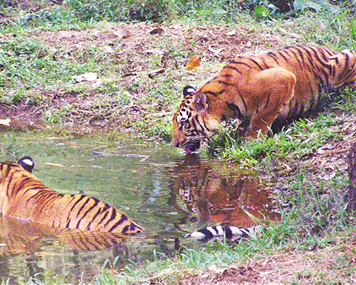
Pilikula Nisarga Dhama
Pilikula Nisarga Dhama is about 12km from city and is a tourist spot with "Manasa" water theme park, animal park, boating, science centre, arboretum, golf course etc., all in one place.
Pilikula Nisargadhama is a multi-purpose tourist attraction, at Vamanjoor, eastern part of Mangalore city in Karnataka, managed by the District Administration of Dakshina Kannada. It is a major tourist attraction of Mangalore. It attracts large number of tourists due to the availability of multiple facilities.
Kadri Manjunath Temple
The temple of Manjunatheshwara on the hills of Kadri is a very beautiful and popular temple in Mangalore. It is said to be built during the 10th or 11th century. It was converted to a complete stone structure during the 14th century. It is believed that Parashurama who was living in Sahyadri, killed the kshathriyas who were cruel and donated the lands to Kashyapa.
He prayed to Lord Shiva for a place to live. Lord Shiva assured Parashurama that if he performed a penance at Kadali kshethra, Lord Shiva would reincarnate as Manjunatha for the betterment of the world. As per Shiva's orders Parashurama threw his axe into the sea and created a place for his penance. Yielding to Parashurama's prayers Lord Shiva appeared to him as Manjunatha with Goddess Parvathi and stayed at Kadri for the betterment of the world. As per the orders of Manjunatha the saptakoti mantras become the seven theerthas.
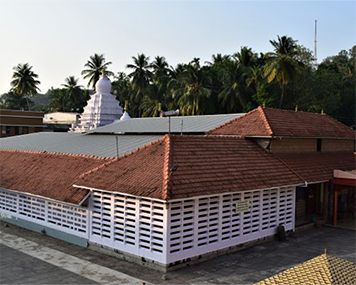
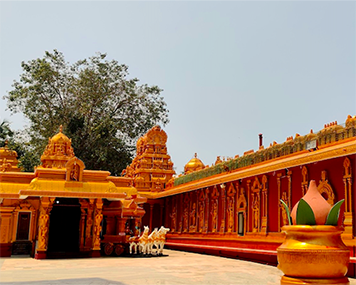
Kudroli Sri Gokarnanatheshwara Kshetra
The Gokarnanatheshwara Temple, otherwise known as Kudroli Sri Gokarnanatheshwara Kshetra, is in the Kudroli area of Mangalore in Karnataka, India. It was consecrated by Narayana Guru. It is dedicated to Gokarnanatheshwara, a form of Lord Shiva. This temple was built in 1912 by Adhyaksha HoigeBazar Koragappa.
The temple is 2km from the centre of Mangalore city. The temple has Gopuram (tower like structure) decorated with murals of various gods and goddesses. Murals depict scenes from Hindu epics and legends.
St. Aloysius Chapel
The St. Aloysius Chapel in Mangalore was built by Jesuit Missionaries in 1880 and its interiors painted by the Italian Jesuit Antonio Moscheni in 1899, during the Mangalore Mission in 1878. The Italian Jesuits played an important role in education, health, and social welfare of the Mangalorean Catholic community and built the St. Aloysius College in 1880,St Aloysius Chapel in 1884, and many other institutions and churches. The interior of the chapel decorated with paintings by Antonio Moscheni (1854 –1905) that cover almost all of the walls, which is unusual in chapels in India. The paintings are preserved by a recognised board of the nation which maintains and restores all historic artefacts.
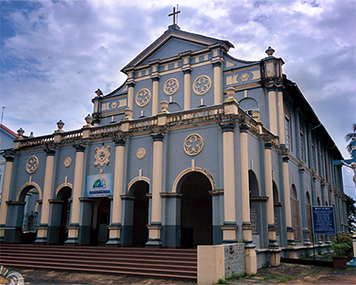
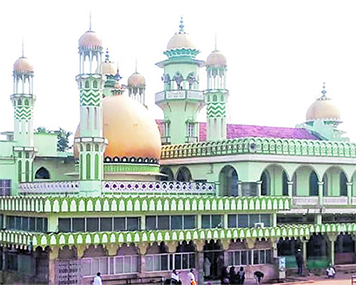
Ullal Darga
At a distance of 9 Kms from Mangalore Railway Station, Ullal is famous for Darga of the Saint Syed Mohammad Sherifulla Madani. The Ullal Jamma Masjid is a famous pilgrim centre for the Muslims. Syed Mohammed Shareefulla Madani Darga is the tomb of the soofi who came from Medina in 1569. The saint helped the poor through prayers and spiritual powers. The land for the darga was gifted by Vittarasa Vodeya. A tomb was raised over the Saint's grave after his death and the miracles continued. Thousands of people from various states visit the mosque to participate in the Urus festival which is celebrated once in every 5 years.
Someshwar Beach
Someshwar Beach is in Ullal, 11 km to the south of the city, near the confluence of the Netravati River and the Arabian Sea. The beach face is extremely rocky and considered dangerous for swimming. However, it is a great place to relax and watch the spectacular sunsets. Ullal is accessible by bus, train and auto rickshaw from the city centre.
Someshwar Beach is a beach located in Ullal in the city of Mangalore, India. The name 'Someshwara beach' is derived from the name of Lord Somanatha, whose temple is located on the sea shore dating back centuries. The hidden rocks and currents along this stretch of coast make this beach unsuitable for swimming.
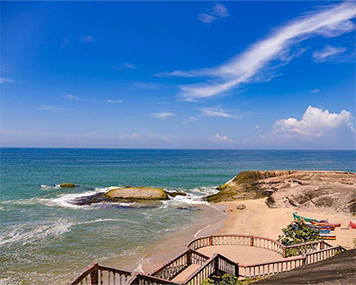
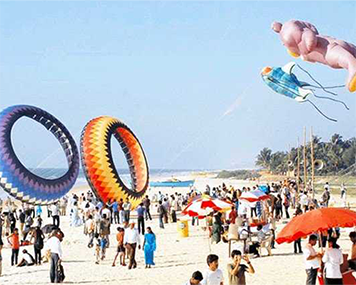
Panambur Beach
Panambur Beach is in Panambur, 10km to the north of the city, Near the New Mangalore Port and along the Confluence of the Gurupur River and the Arabian Sea.
This is comparatively more deserted and is a great spot for safe and secluded swimming. Panambur is well connected by bus and can also be reached by auto rickshaw from the city centre.
Surathkal Beach
Surathkal Beach is about 15km to the north of the city. It has a beautiful lighthouse and few rocks. The biggest thing on this beach is its "sand”. It’s totally different from all other beaches that it is powder like as compared to sand like consistency at all other beaches. You can confirm it by walking barefoot on beach. This beach have one resort named :Red Rock Residency" where people come every weekends to enjoy with awesome food.
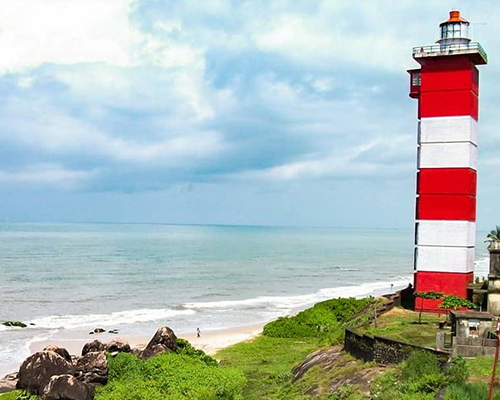
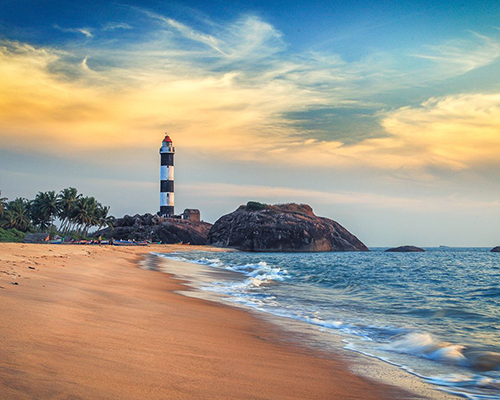
Kaup Beach
Kaup Beach is about 45 km to the north. It can be reached by a the local express buses in 45 minutes. The beach has a lighthouse which is open to visitors.
Kapu's long sandy beaches offer a panoramic view of the Arabian Sea. With its tropical climate and a bevy of attractions that beckon tourists from across the country, Kapu is predominantly known for its greenery that surrounds the beach.
